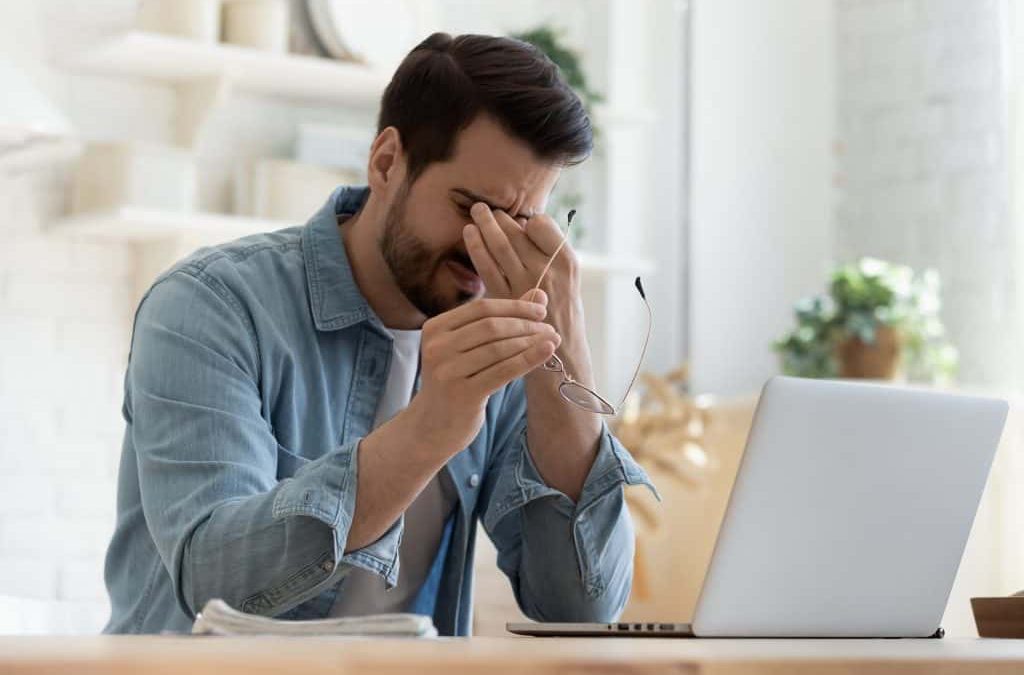You may wonder how long your depression will last and if it will clear up on its own if you have depression. Since each individual’s experience of depression is unique, there is no standard length of time for depressive symptoms. The number of factors determines how long depression lasts.
At least two weeks of symptoms are necessary for a mental health professional to diagnose depression. The symptoms of depression can persist only for a short period in some cases. However, severe depression can last for months or even years in some cases.
If you receive professional care, you are more likely to see a quicker resolution to your symptoms, regardless of how long you’ve been depressed.
To learn more about our energy healing services in Beverl, call us for a free 15-minute consultation
Contents
How Long Depression Lasts?
A person’s symptoms must endure for at least two weeks to be classified as depression.
The length of depression after these two weeks varies widely from person to person and varies depending on the type of depression. Depression may dissipate over time for some people, while others may experience it intermittently throughout their lives.
Some varieties of depression fade away over time, while others are more transient. Seasonal affective disorder, sometimes called winter depression, is a type of depression that occurs only once a year during a specific season. The symptoms begin to fade as the seasons shift and the days go. On the other hand, postpartum depression usually appears shortly after birth and lasts for just a few weeks.
The disease termed major depressive disorder (MDD) is characterized by long-lasting depressive phases and can also be chronic. Without mental health treatment, the major depressive disorder can persist for months or even years. These severe depression episodes may arise and pass, with periods of less severe symptoms in between. A person suffering from significant depression may go through a cycle of mild and severe depression all their lives.
Relationship Between Depression Type and Duration
Major Depressive Disorder (MDD)
Chronic depression, or major depressive disorder (MDD), is most often used to describe depression.
Chronic depression is characterized by low self-esteem, low energy, depressed mood, and interest in activities.
A person may only experience one episode of chronic depression in their life, whereas others suffer from recurrent bouts. MDD bouts may last between six and 18 months.
The sooner you begin treatment, the more likely you will recover and avoid repeat bouts as soon as you notice the first symptoms.
Read more about Different kind of healing for depression
Persistent Depressive Disorder (PDD)
You may be diagnosed with chronic depressive illness, also known as dysthymia if you’ve been depressed for more than two years. The disease is characterized by milder and longer-lasting symptoms than severe depression.
You may feel depressed, bored, and alienated when you have PDD. Pessimism and a negative self-image are also likely to appear. Some persons with PDD have suffered a catastrophic loss, while others suffer from continuous stress.
Unlike others, this type of depression is not as severe, so its symptoms can often go unnoticed. Because of this, some people have coined the term “high-functioning depression,” which is an unofficial diagnosis.
Some people may have PDD for so long they believe it is an integral part of their personality.
It is common to combine psychotherapy and medications to treat PDD. This combination of treatment may be more effective than either treatment alone for lowering the intensity of your symptoms.
Perinatal/Postpartum Depression (PPD)
Postpartum depression is depression that develops during or after childbirth. Perinatal depression develops during or after pregnancy.
Symptoms of prenatal depression include anxiety, despair, and fatigue, making it hard to manage for themselves or others. In the year following childbirth, postpartum depression can occur.
It is unclear whether postpartum depression will last a few weeks or turn into a significant depression depending on several factors, the most important being not seeking care for symptoms.
In some cases, the effects of postpartum depression resolve within three to six months after beginning; in other cases, severe symptoms may persist beyond six months and may need to be managed for over a year.
In addition to medication, the family’s involvement can help shorten the duration of perinatal depressions.
4 Ways Reiki Benefits You During Pregnancy and Postpartum Period
If your energy level and activity level fluctuate with the weather, you may have the seasonal affective disorder. The symptoms of this type of mood disorder may change seasonally.
As a result, the seasonal affective disorder typically lasts four to five months.
Most people experience symptoms beginning in late fall and lasting until early spring. Some people, however, experience symptoms during the summer.
Bipolar
Bipolar disorder causes mood swings ranging from high peaks (mania) to intense low points (depression). Bipolar depression is used to describe someone who experiences low mood episodes due to their bipolar disease.
Some studies suggest that an episode of depression might last up to 12 months in patients with bipolar disorder. Patients with bipolar disorder have depressive moods that last longer than manic moods.
With proper care and therapy, you may be able to lead a good life despite suffering from bipolar disorder. It involves regulating your symptoms so that depressive moods don’t last so long.
Does Depression Dissipate on Its Own?
Usually, more serious forms of depression require expert mood and anxiety disorder therapy to observe symptomatic change. However, some cases may resolve on their own. Typically, this results from milder episodes of depression, such as postpartum depression, which is merely transient.
Even though some depression may disappear entirely without therapy, seeking the appropriate assistance is the most effective way to reduce its duration. Although depression treatment centers, especially those that deal with the most severe forms of depression, can make symptoms less severe and prolonged, combining therapy techniques with medicine is commonly more beneficial in depression treatment.
The problems associated with untreated depression can worsen or develop into other complications. Other mental health conditions can create, or depression may progress to suicidal thoughts. Some people self-medicate with drugs and alcohol, resulting in a drug misuse problem. When this happens, dual diagnosis therapy is needed.
Quick And Easy Guide To Find Out Generalized Anxiety Disorder
A Reiki/Psychotherapy Treatment
Psychologists are increasingly looking for ways to help patients cope with emotional pain and physical discomfort. Anxiety and mental anguish reveal information about behavioral and lifestyle adjustments that may benefit one’s health. As patients receive Reiki, they can anchor themselves and be completely present in their bodies, listening to what their bodies, minds, and souls reveal and express as anxiety and depression symptoms.
Reiki is a technique that uses anchoring techniques in conjunction with psychotherapy. Reiki technique helps people visualize whatever they wish to rid themselves of as a form with color, shape, and feeling. They are asked to let go of their image once they have finished creating it (anxiety, resentment, depression, anger, etc.). Once again, they say out loud if they are ready to make the required adjustments to fulfill their desires.
As a self-care technique, Reiki encourages independent and self-aware behavior in patients. Reiki facilitates awareness of physiological and energetic needs and provides a means of providing treatment and therapy.
The Mechanism Of Reiki
The body contains life energy, also known as ki, which circulates throughout the body. When the body is damaged, the movement of life energy is impeded, making well-being difficult. Reiki is designed to improve your body’s ability to move life energy, allowing the body’s natural healing ability to flourish. The natural healing mechanism can be stimulated by assisting the patient in achieving a peaceful condition through resting on their hands or through distance therapy and passing the healing energy on to the patient.
How does Reiki Help Treat Depression?
A depressive disorder makes a person constantly unhappy and down. Although many people associate it with feeling down occasionally, the illness can have much more severe consequences. People suffering from depression may become bored with regular tasks if not diagnosed and treated.
Reiki Healing is The Best Option You Have to Treat Depression in 2022
How Reiki Reduces Depression Symptoms
During Reiki, the reiki master sends a flow of energy to the person undergoing treatment. The reiki master uses different postures on the body to transfer power. The energy then infiltrates the body and travels to the desired location.
The energy body of the individual undergoing therapy changes due to the injection of energy. All illnesses, including depression, manifest as impediments to the average energy circulation. Lack of energy can result from repressed emotions, lousy eating habits, insufficient hydration, poor sleep, and other lifestyle factors.
They are often caused by anxiety and repressed sorrow and grief. Imagine how you react when under pressure. On the inside, you stiffen up, and the movement of energy in your body becomes restricted. It inhibits your ability to function normally. If you combine that stressful event with all the other pressures in your life, you have severe energy blockages that can lead to sickness, including mental pain and depression.
Reiki Helps You Discover Your Happiness
Reiki reconnects us to our healthy, natural energy flow. Reiki provides us with information about who we are and how to be healthy and happy when we encounter it. The energy facilitates the clearing of obstacles and makes us feel more robust, more comfortable, and more compassionate toward ourselves and others as the tightness begins to loosen.
Reiki’s history is littered with tales of how it has cured people from life’s ills. Some people recover quickly, while others require several sessions for the new energy to settle in and erase obstacles. Reiki has the advantage of being studied and then practiced on oneself. Self-reiki is a daily practice for many reiki practitioners to clear their blocks.
Reiki therapy can be a wonderful experience, allowing you to connect with a positive side of yourself that you might not even be aware of when you’re depressed. Getting in touch with your inner therapist is an excellent way to start getting out of depression, anxiety, dread, etc.
To learn more about Reiki and find a Reiki therapist in your area, visit Yrma Wilson
The Bottom Line
Alternative treatments, such as Reiki, can aid in releasing tension from the body and calm the patient, in addition to counseling and medicine.
Studies have shown that Reiki can help relieve physical ailments, such as migraines and pounding headaches. Stress and depression symptoms can also be alleviated with Reiki.
Even though many people have direct experience with the efficacy of this Japanese healing practice, professional research studies are still inconclusive.
It may be helpful due to its relaxing qualities as a natural remedy since it also improves sleep and facilitates emotional recovery. However, even if you receive Reiki regularly, you should visit a psychiatrist and continue taking your prescription medications.
DISCLAIMER: THIS BLOG CONTAINS NO MEDICAL INFORMATION.
This article has no intention to provide medical advice or diagnose or treat any disease. The information provided here is intended solely for educational purposes. This essay aims to provide a greater understanding of Reiki and how it can treat a variety of ailments.
Before starting any new treatment, consult with a health care practitioner if you have any questions about a health condition or therapeutic measures. Still, you should never disregard expert healthcare advice or fail to follow it in response to the article you read.
References:
How Long Does Depression Last? & Will It Go Away on Its Own?. (N.D). Banyan Mental House.
https://www.banyanmentalhealth.com/2020/09/22/how-long-does-depression-last/
Curtis, L. (2021, May 20). How Long Does Depression Last?. Phych central.
https://psychcentral.com/depression/how-long-does-depression-last#types
Hill, M. (2020, June 08). How Reiki Helps Depression. Sensitive Evolution.
https://sensitiveevolution.com/how-reiki-helps-depression/
Reiki for treating depression: Know all about it. (2019, September 06). Times of India.
Fisher, Ch. (2015, April 30). Reiki and psychotherapy. Counseling Today.


